Why are there so many homeless people in Birmingham?
- Published
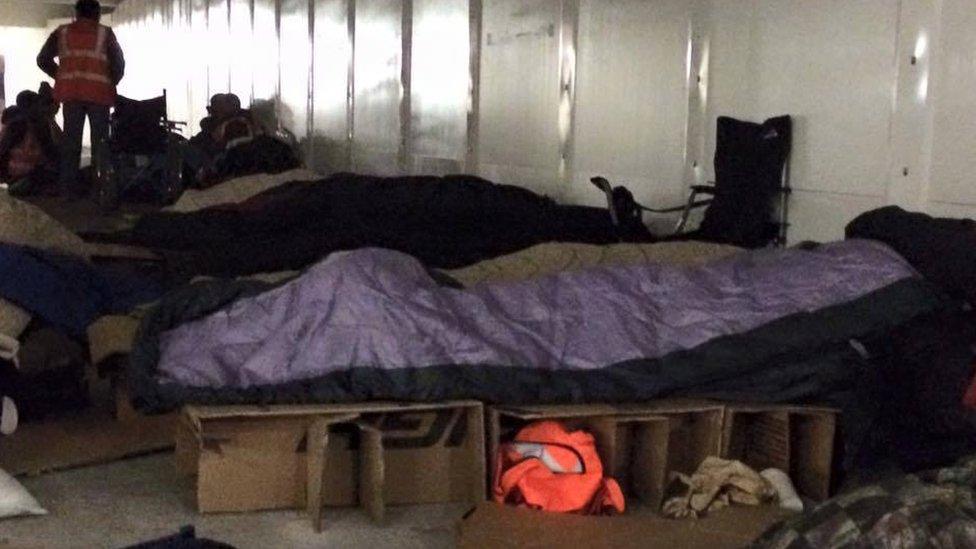
The old library used to provide shelter for many homeless people in the city
The sleeping bags are evident as commuters walk to New Street Station in Birmingham. Bedding is piled up in shop doorways and shoppers are regularly asked if they can spare some change. But is the number of homeless people in the city centre increasing and what is being done to help those sleeping rough?
The figures speak for themselves. Official statistics - compiled by the council doing a "head count" show there were nine people recorded as sleeping rough in 2010, compared with 36 in 2015, which is an all-time high.
But the true figure is probably much higher, and the situation prompted several readers to use Your Questions to ask the BBC to find out why.
Robert Flynn said: "I count at least a dozen people sleeping rough in Birmingham city centre on a 10-minute walk to work, very early in the morning. We appear to be doing nothing for these people."
Rik James, who runs Birmingham Homeless Outreach, said the demolition of Birmingham Central Library was one of the many reasons why homeless people were now more visible on the streets.
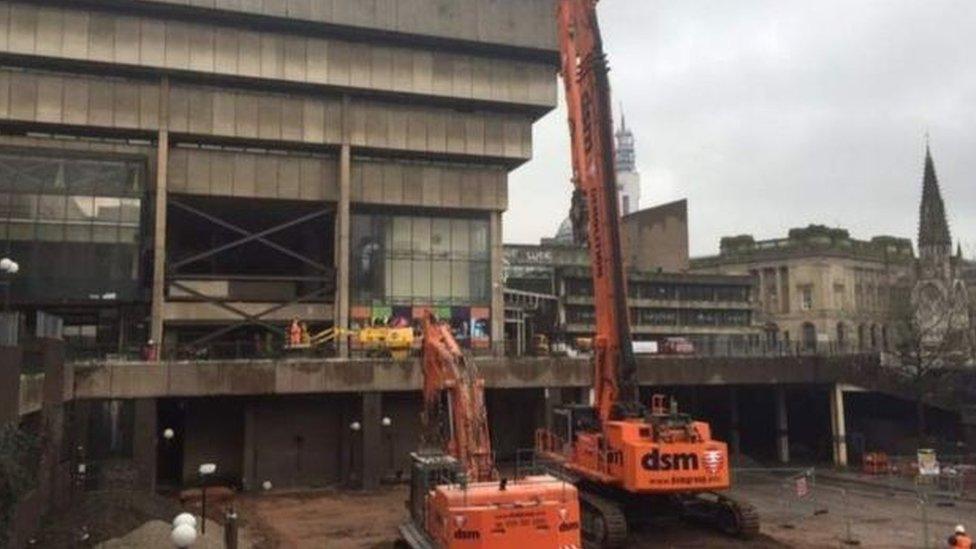
Birmingham Library's demolition removed a place of shelter for homeless people in the city
An unofficial shelter had been there for several years, with many sleeping underneath the brutalist building, which was held up on concrete stilts.
"When I first started doing outreach I used to feed 40 a night under the old library," he says. "The library car park was so big so they were all over the place."
Demolition began in December 2015 to make way for the new Paradise development, leaving many people searching for a new place to sleep.
Rik, who was once homeless himself, says people were also coming from other cities such as Coventry, Leicester and Wolverhampton, because Birmingham was seen as a more lucrative place to make money - especially nearer Christmas.
"They all come up during the German Market time. They see it as a money-making exercise. They find a spot early," he says.

The German market is one of the reasons Birmingham is seen as a lucrative city around Christmas
Rik says he used to be a well-off businessman, but was left penniless following his divorce. He slept on a bench in Liverpool for three years, before relocating to the West Midlands to be nearer his daughter.
When asked about the latest council figures, he says, "Thirty six? I fed 80 people last week."
More stories from Birmingham and the Black Country
Richard Taylor, aged 33, who is originally from the city's Yardley Wood area, has lived in hostels and on the streets for a number of years.
He started sleeping rough under the old library in 2014, along with about 60 other people.
"My family didn't want to know me," he says. "I've been in and out of hostels and under the old library."
Mr Taylor, who has ADHD and autism, describes life on the streets as "very scary" and says he has seen people being attacked with glass bottles.
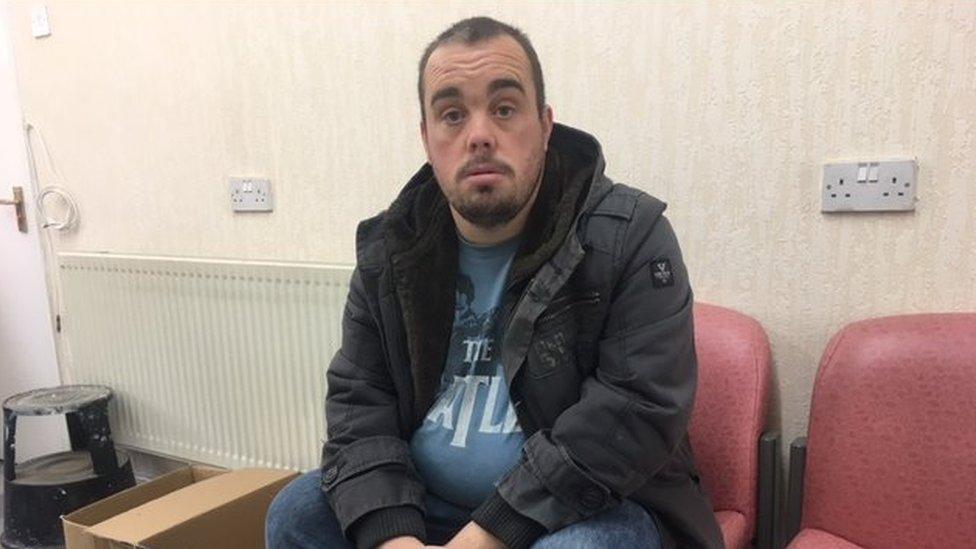
Richard Taylor started sleeping under the old library two years ago
But he says conditions under the library were dry and there was a sense of community with people using a gas heater to keep warm.
Mr Taylor slept under the library for about six months and said he was always overlooked by the council.
"The council should do more for people in Birmingham and all over the Midlands. They would hardly come out. I've never seen the council come out once."
Birmingham City Council says it is working with the police and local charities by visiting homeless people in the city and directing them to benefits, housing and substance abuse services.
"We have also commissioned services that target different groups - whether youth, victims of domestic abuse, former offenders, entrenched rough sleepers," a spokesman said.
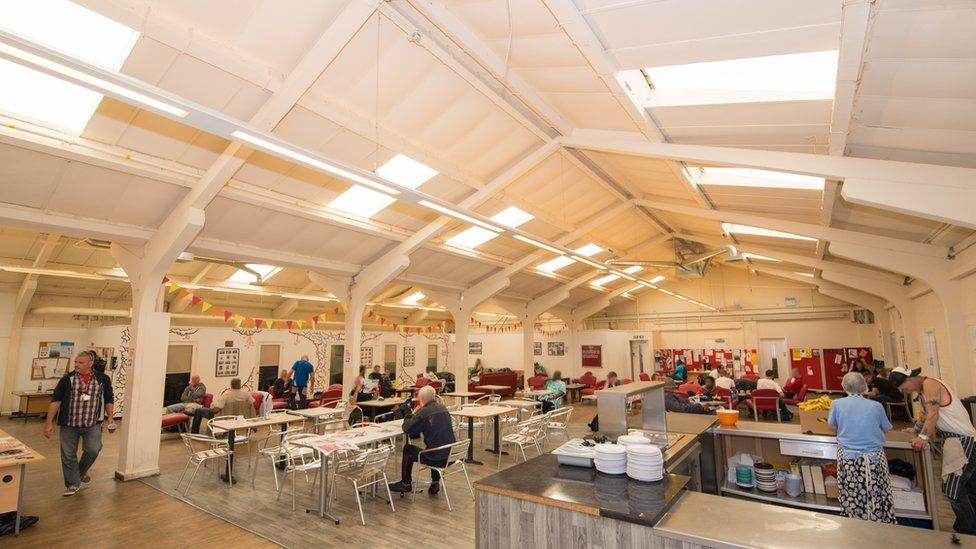
The Sifa Fireside Day Centre provides support to the homeless
But could there be other factors, besides the demolition of the old library, behind the increase in homeless people in Birmingham?
Cath Gilliver, who runs Sifa Fireside, a day care centre for homeless people, says many homeless people are in work, but cannot afford rising rent prices or are awaiting approval for housing benefit.
"A number of homeless people in Birmingham are EU migrants," she adds.
"They have a low paid job but they have to sleep on the streets, they also may have come over to work but have been exploited by employers who control their accommodation."
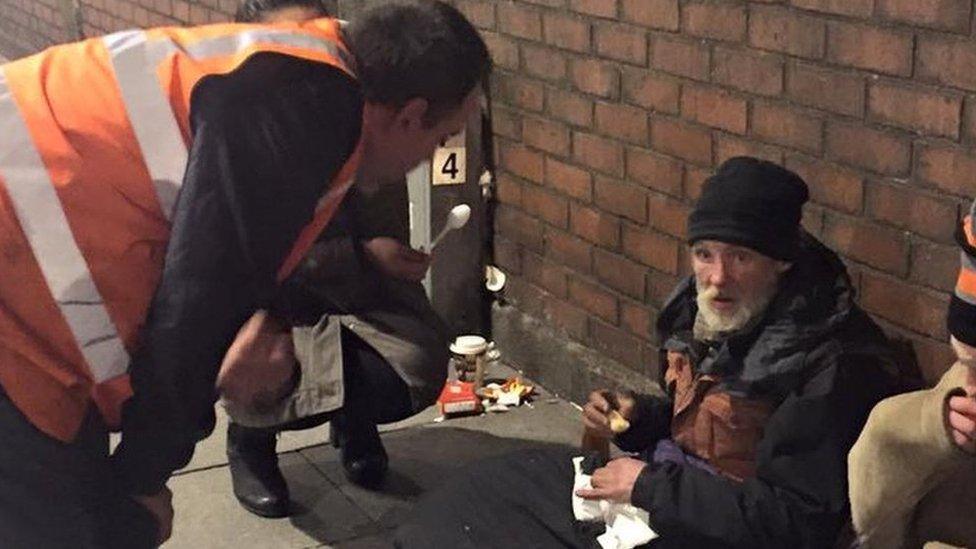
Birmingham Homeless Outreach volunteers provide food, bedding and clothes to those on the streets
Councillor Peter Griffiths blames government policy for the rising numbers.
He says: "There are unfortunately more homeless people and more people sleeping rough. This is in part due to the government's welfare reforms. Alongside this, the government's homelessness prevention grants have decreased."
But the Department for Communities and Local Government disputes this, with a spokesman saying: "There are many reasons for homelessness and to suggest that it is due to welfare reforms is misleading.
"We're investing £500m to tackle homelessness - including protecting prevention funding - and recently announced £40m for councils to help rough sleepers."
The government has pledged to support a bill to make councils in England do more to help people off the streets and into homes.
But as commuters make their way home in the evening, the streets of Birmingham are still filled with those who say they do not have anywhere to go. And as they are more visible, perhaps they are now harder to ignore.
- Published8 February 2016
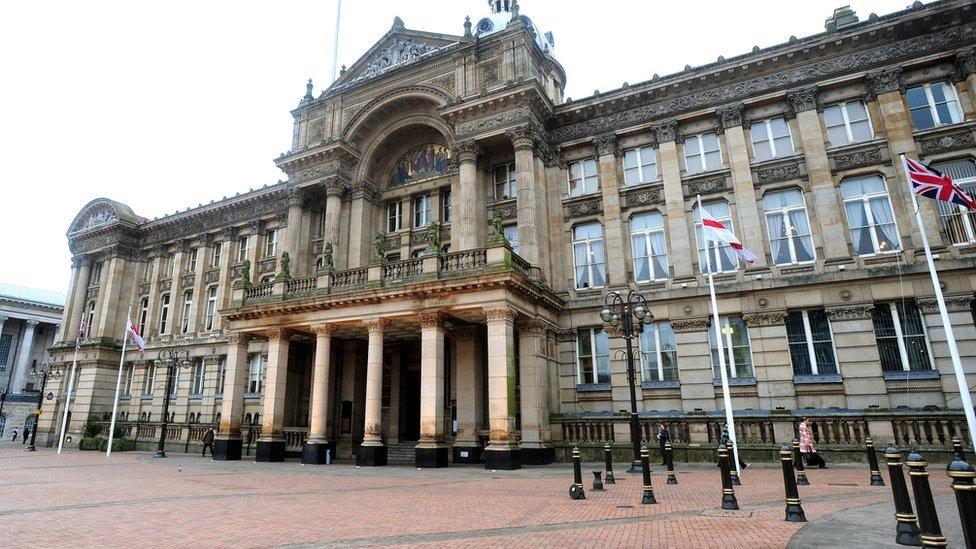
- Published14 December 2015
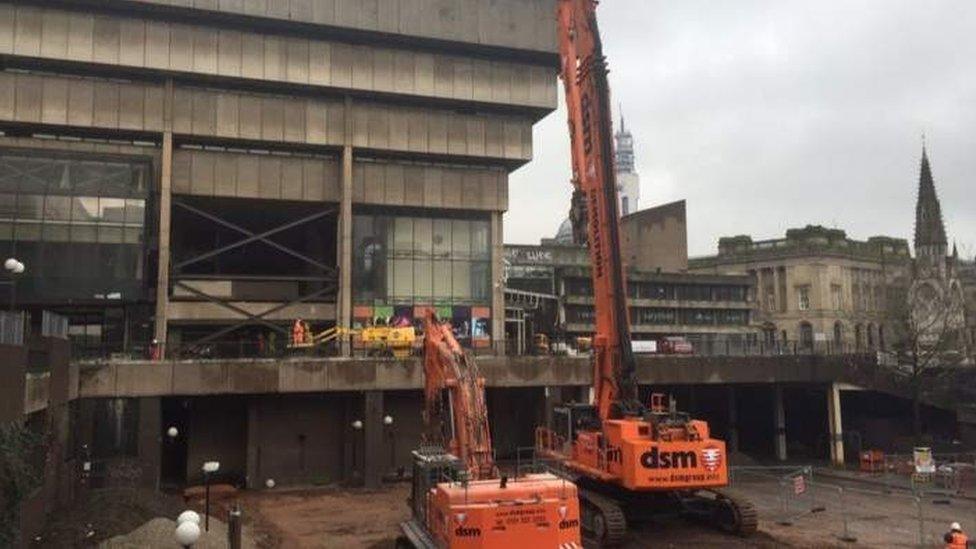
- Published18 August 2016
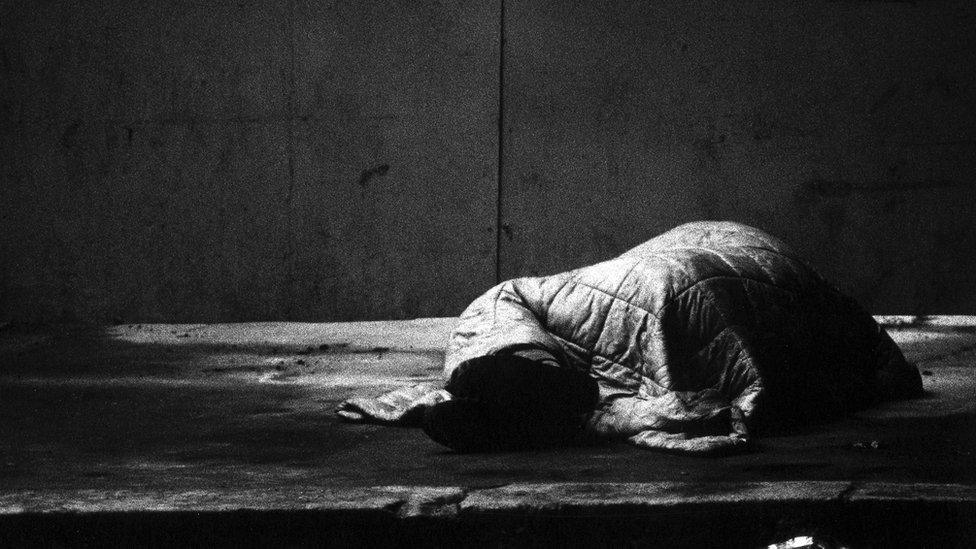
- Published28 October 2016